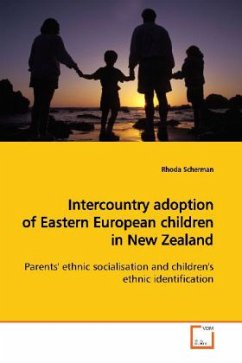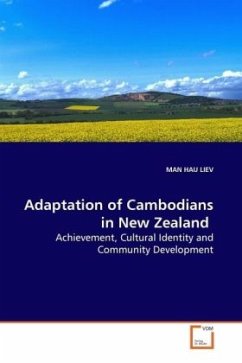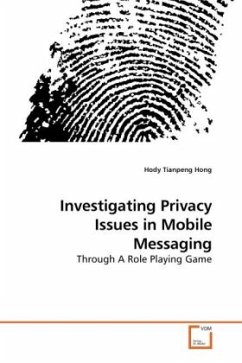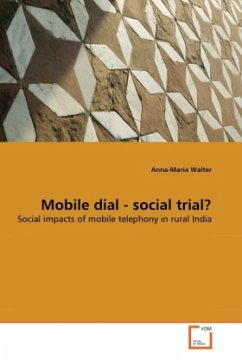
MOBILE NEW ZEALAND
A Multi-Method Comparative Study of Cell Phone Use
Versandkostenfrei!
Versandfertig in 6-10 Tagen
52,99 €
inkl. MwSt.

PAYBACK Punkte
26 °P sammeln!
Worldwide use of mobile phones has created a newbasis for interpersonal communication and has become aubiquitous feature of youth culture. This thesis focused on universitystudents use of mobile communication in New Zealand in the context oftheir everyday practices. The study was designed as across-national comparative research project with a focus on NewZealand. The usage behavior, experiences, attitudes, and opinions of young NZers towards mobile phone use was examined and contrasted to young German and American students.This research focused on general mobile phone use, text-messaging(SMS),...
Worldwide use of mobile phones has created a new
basis for
interpersonal communication and has become a
ubiquitous feature
of youth culture. This thesis focused on university
students use of
mobile communication in New Zealand in the context of
their
everyday practices. The study was designed as a
cross-national
comparative research project with a focus on New
Zealand. The
usage behavior, experiences, attitudes, and opinions of
young NZers towards mobile phone use was examined and
contrasted to young German and American students.
This research
focused on general mobile phone use, text-messaging
(SMS), the
acceptance of Third Generation (3G) cell phones,
mobile phone use
in public places, gender-specific usages, and mobile
social
networks. Methodological and data triangulation was
applied.
Results indicated that the number of providers as
well as tariff
structures appear to influence mobile phone adoption
within a
country. To adjust to the duopoly situation, young
people in NZ
preferred prepaid cards in connection with a SMS
package. This was
reflected by extraordinarily high use of SMS in NZ.
basis for
interpersonal communication and has become a
ubiquitous feature
of youth culture. This thesis focused on university
students use of
mobile communication in New Zealand in the context of
their
everyday practices. The study was designed as a
cross-national
comparative research project with a focus on New
Zealand. The
usage behavior, experiences, attitudes, and opinions of
young NZers towards mobile phone use was examined and
contrasted to young German and American students.
This research
focused on general mobile phone use, text-messaging
(SMS), the
acceptance of Third Generation (3G) cell phones,
mobile phone use
in public places, gender-specific usages, and mobile
social
networks. Methodological and data triangulation was
applied.
Results indicated that the number of providers as
well as tariff
structures appear to influence mobile phone adoption
within a
country. To adjust to the duopoly situation, young
people in NZ
preferred prepaid cards in connection with a SMS
package. This was
reflected by extraordinarily high use of SMS in NZ.












